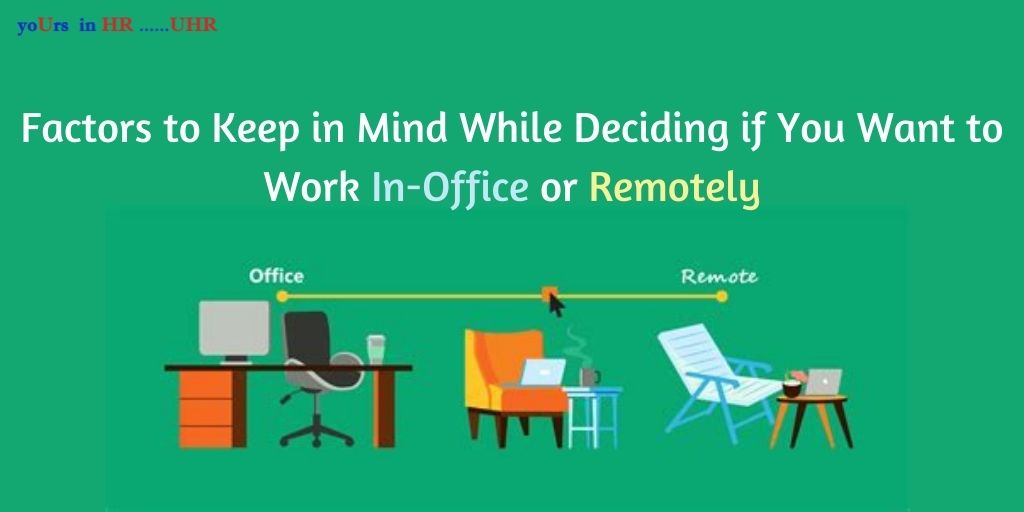
Last year we saw the emergence of a full-fledged remote working scenario. Gradually, with the improvement in the situation, we saw the arrival of the ‘hybrid’ system of working, as we have charted out in one of our earlier articles. As of now, we have a whole lot of us returning to the office.
There are some organisations which have offered the employees an option from among remote work, in-office work, or even a combination of everything. Some offices have called back everyone in full strength. Some offices have an in-office time-table for each set of employees spread over the week, and some offices have a policy of dividing remote work and in-office work evenly.
To the ones who are fortunate enough to have a choice of deciding if they want to continue remote work or go back to the office, what are the factors that should be kept in mind?
To the ones looking for a new job and wishing to weigh in the pros and cons when it comes to choosing remote work or in-office work, how should they decide?
To the ones feeling stuck at their jobs, is it possible that a different format of working could be just what was needed?
In this article, we give out some pointers to keep in mind while deciding if we want to go for remote work or go back to the office, or have the best of both worlds.
Safety Concerns:
If you have been provided an option about working remotely or in-office, one major deciding factor would be the safety policies of the company. What kind of safety precautions have they adopted? How well is the office space maintained when it comes cleanliness and hygiene? What are the surroundings of the space like? How are the meetings conducted in the office space and do the employees follow the protocols?
Does the space make one feel safe, literally, or is coming to the office likely to become a daily source of anxiety for one’s personal safety?
These are some basic starting points to think about when making a decision.
Job Description and Company Values:
Some jobs like those in hospitality, defence, healthcare and other public services don’t have an option to choose. But there are some jobs, like those in advertising and marketing, and other corporate jobs, where depending upon the responsibility, one would be able to reach a compromise. These are also the jobs where once in a while an offline, in-person session would work well, perhaps to brainstorm and set the agenda, and later disperse remotely to work on them at one’s own pace.
There will also be values and culture of the particular company which would come in play here. Some companies, with a more conservative, bureaucratic structure might expect its employees to be around and establish great networks with seniors, clients and collaborators. Some companies on the other hand might be looking to just get the work done, irrespective of networking patterns.
It thus becomes necessary to keep these factors about the company in mind and deciding whether one wants to go for remote work or in-office work.
Communication Preferences:
Again, depending on the profession and company, the communication style amongst team members and departments would differ. Information about the tools the organisation uses for remote networking, the expectations of how and whom to report from the employee would make a difference in how the work gets done. These are the questions the individual will have to ask to the employers, as we have mentioned in an earlier article about the new kind of questions one should be prepared with amidst the new normal.
Here, one also needs to factor in the communication style of the individual. Are you someone who likes to take their own space to get a task done? Or are you someone who likes to discuss and brainstorm? Are you someone who can handle delays that come with not having immediate offline access to a head or team member? Or are you someone who has a lot of autonomy and finds notifications, out of the blue virtual meetings a hassle? Are you someone comfortable with technology or prefer the old-fashioned way to work?
The communication style involved at the level of the organisation and that of the individual when mingled, will give a fair sense of the choice one needs to make.
At the end of the day, it is the personal priorities, goals about one’s career, working style, and the extent to which the company work culture fits with these aspects that will help the person to make a decision about working remotely or in-office.


